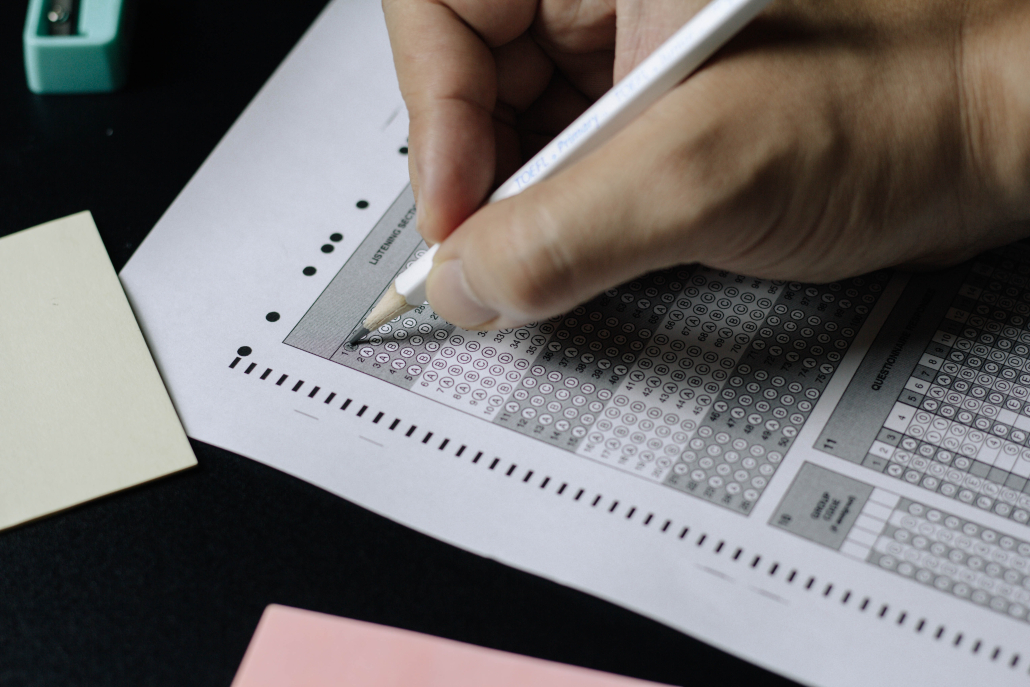Digitizing the SAT fixes nothing

It’s back, better than ever and completely predictable: The SAT — which apparently stands for Scholastic Aptitude Test — is going digital.
The College Board, the nonprofit organization that administers the SAT, announced the shift would take place in 2024 for American students and even sooner for international students.
Now, before we 20-somethings start sharpening our pitchforks and muttering, “Back in my day,” there are currently no plans for the digital SAT to become an at-home test. Students will still have to rely on their knowledge and memorization, not just a stable Internet connection.
This major update, as with the two preceding, is simply the latest installment of “Does this fix it?” to which the answer is almost unequivocally, “not really.”
High school students have been sweating over the SAT for years, ever since the College Board decided they needed a standardized test that could be used by a wide array of educational establishments, not just well-endowed northeastern private schools.
Since then, the SAT has been a staple of American students’ college applications. Many students begin practicing for the test during their junior year of high school and don’t stop until their score is as close to 1600 as possible. It’s estimated that parents are willing to spend upwards of $2,600 for private instruction to ensure their child gets a shiny, sexy acceptance packet from their dream college in the fall.
The test’s ubiquity has dwindled over the years — much to the delight of high schoolers and wallets everywhere. There are several reasons for this: 1) everybody hates it 2) rich people have an unfair advantage 3) it hails from a deplorable history
First, there’s the question of why everybody — students, faculty, guardians — hates the SAT. Aside from the fact that it’s a two hour-long test meant to score students’ value as a college candidate, people have largely found it to be an unnecessary obstacle.
For example, if an 18-year-old high school senior is interested in pursuing a degree in filmmaking, their score on the math portion of the SAT should be rendered obsolete. After all, the last time a screenwriter was seen solving a complicated constructed proof was — never, that’s never happened.
Unfortunately, with the way the SAT is scored, it doesn’t matter what degree the student has selected. If admissions deem the score subpar, the chances of being accepted slim down significantly. This expectation for all students to be equally brilliant across all subjects is completely unreasonable.
Next on the docket is the matter of privilege. This point is a little more cut and dry. The truth of the matter is wealthy kids from wealthy families will always have an unfair advantage. If the SAT was abolished tomorrow, silver-spooned Sams and affluent Abbys would still be able to hire a professional essay writer and have their resume carefully reviewed and edited. They have more time to participate in extracurricular activities and afterschool clubs because they don’t have to work and, most obviously, they have disposable income to throw into the tuition well.
Rich kids might make for annoying members of our cohorts, but they definitely make for extremely valuable alumni. How else would USC be able to afford a new Global Supply Chain Institute?
Finally, there’s the marred history of the SAT and of the College Board itself.
In 1926, the College Board was looking for a way to standardize its admissions process. Enter Carl Brigham, a psychology professor at Princeton. He’d written a book called “A Study of American Intelligence” in 1923. In it, Brigham concluded that white Americans, or the “superior Nordic Race,” had the highest intelligence of any other tested American group. He also posited that the nation’s intelligence on the aggregate was declining due to increased immigration from Eastern Europe. This all really tickled the Board’s fancy because three years later, they would ask him to develop what would become the modern SAT.
Look, we live on stolen ground, soaked to the mantle in the blood of immigrants and enslaved, hated and oppressed people of every creed and color. The origin of most things is shrouded in darkness and cruelty. At some point, we must accept that fact or doom ourselves to a lifetime of writing apology notes — negated by some evil act committed against another group of people, simultaneously, somewhere across the globe.
As this archaic form of assessing teenagers’ intelligence slithers down the pipe and straight into Hell, college admissions will have to find other, potentially more personalized ways of deciding whether or not a prospective student makes the cut. In the meantime, the College Board seems a little more interested in pushing commas around and loaning out cinderblock laptops. Why create something new when we can just slap band-aids on the old thing?

